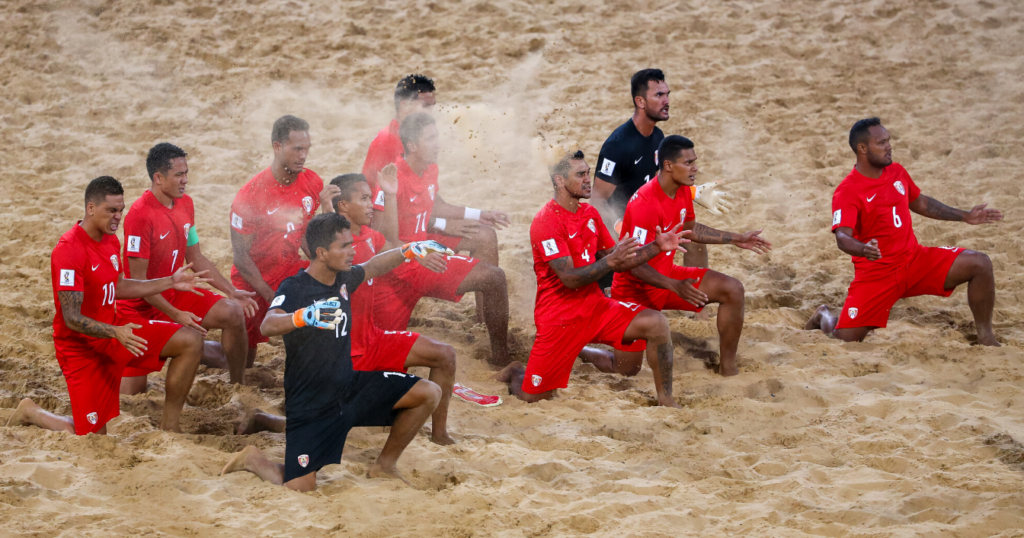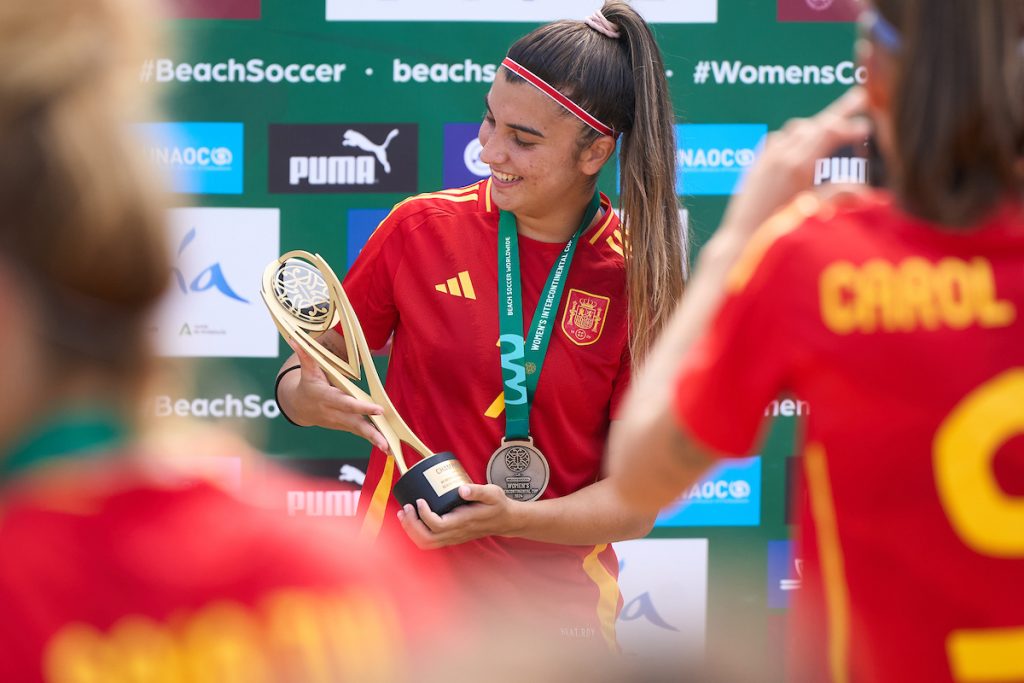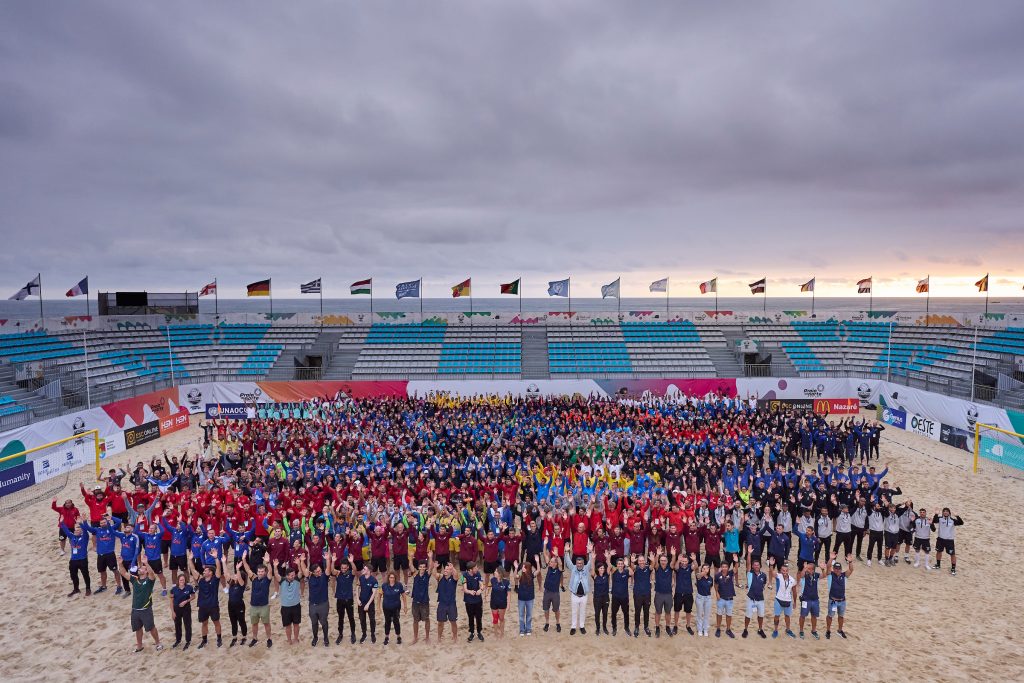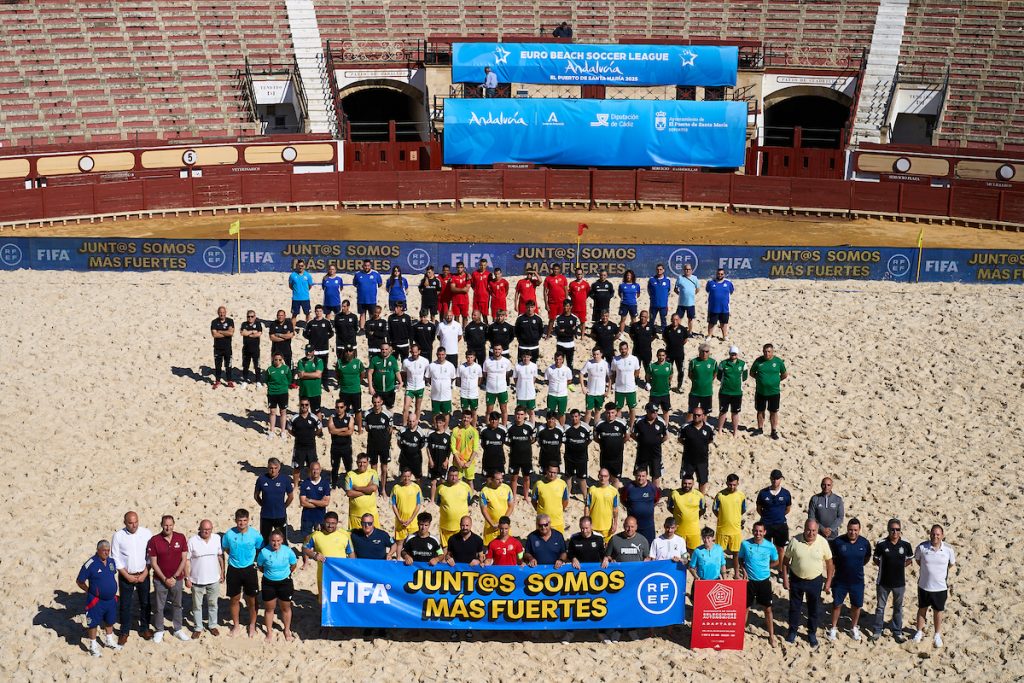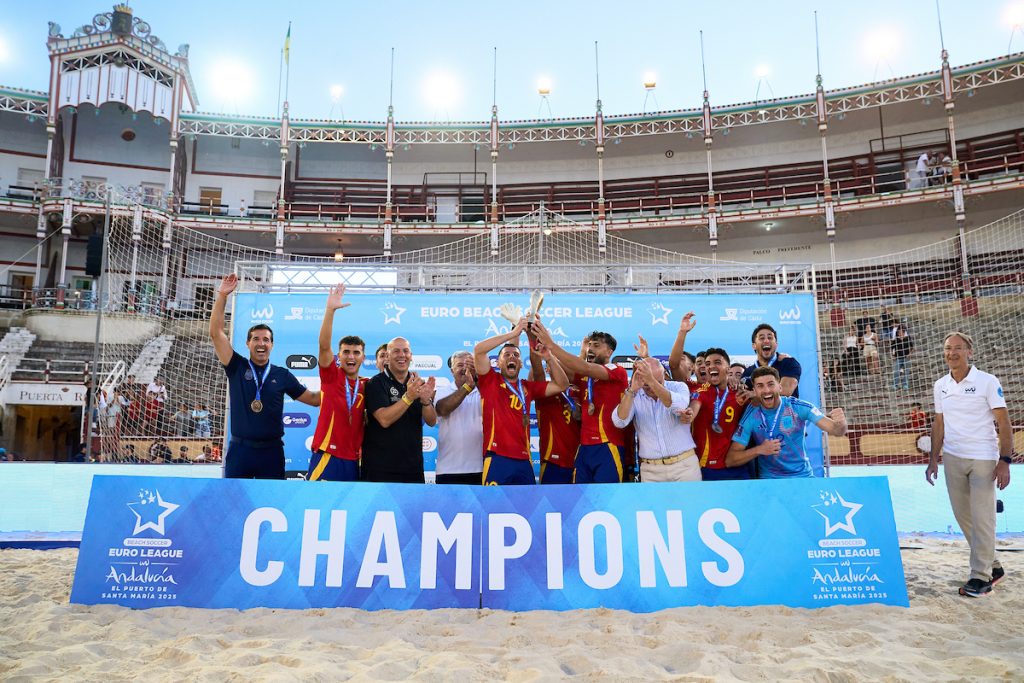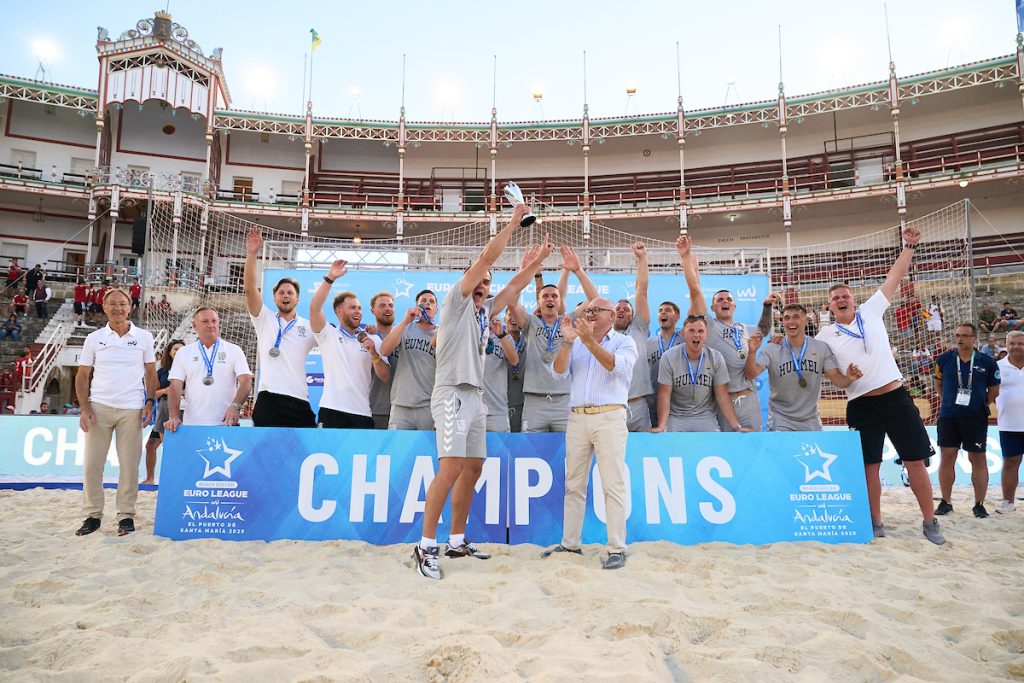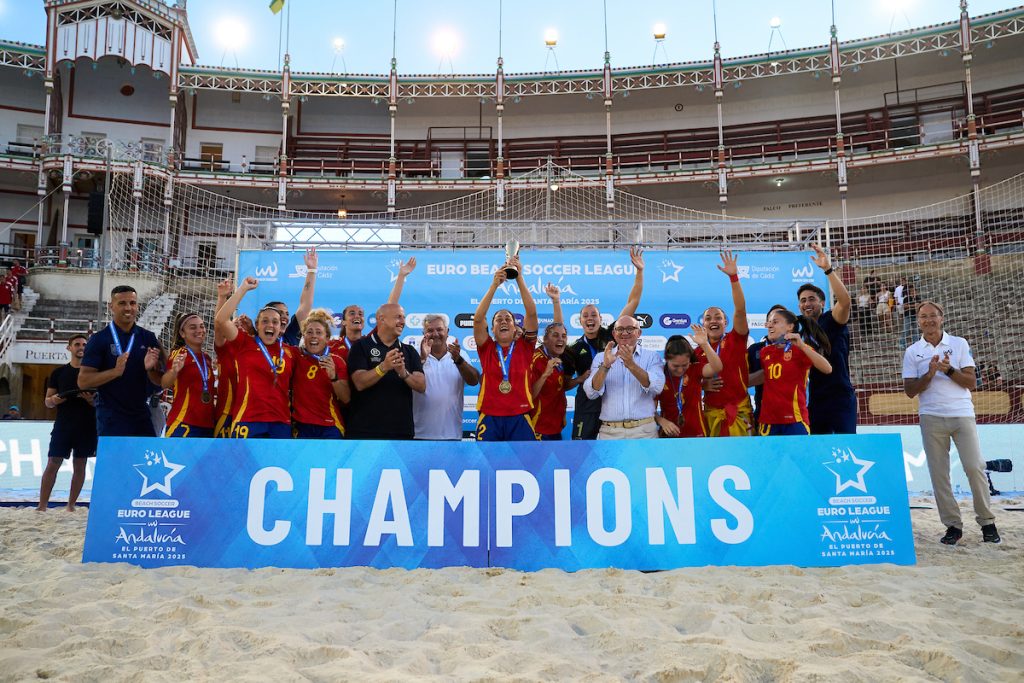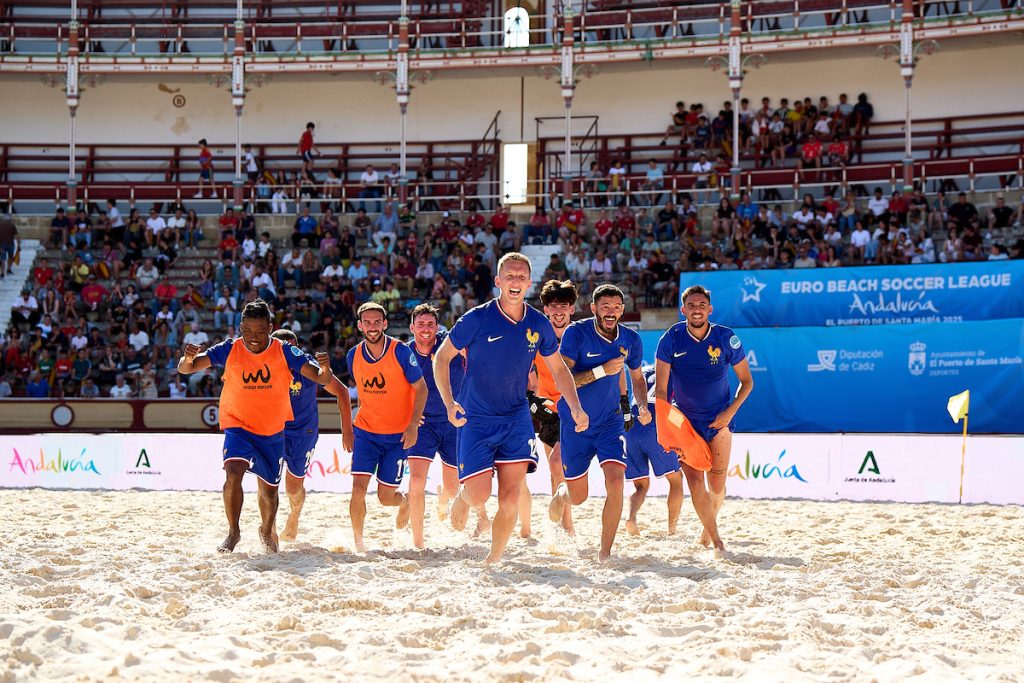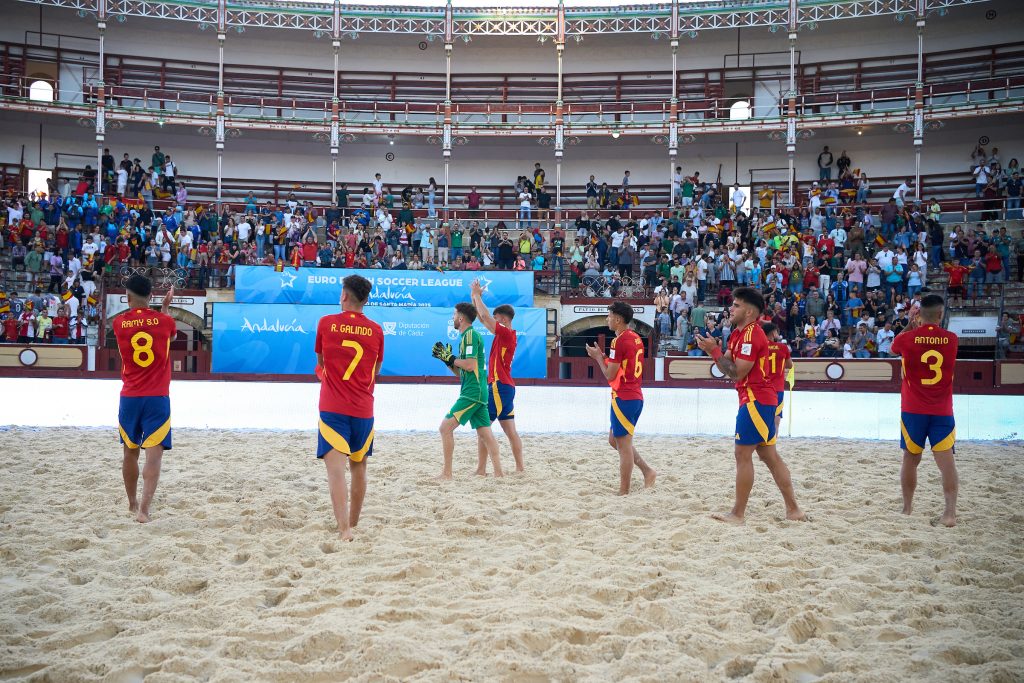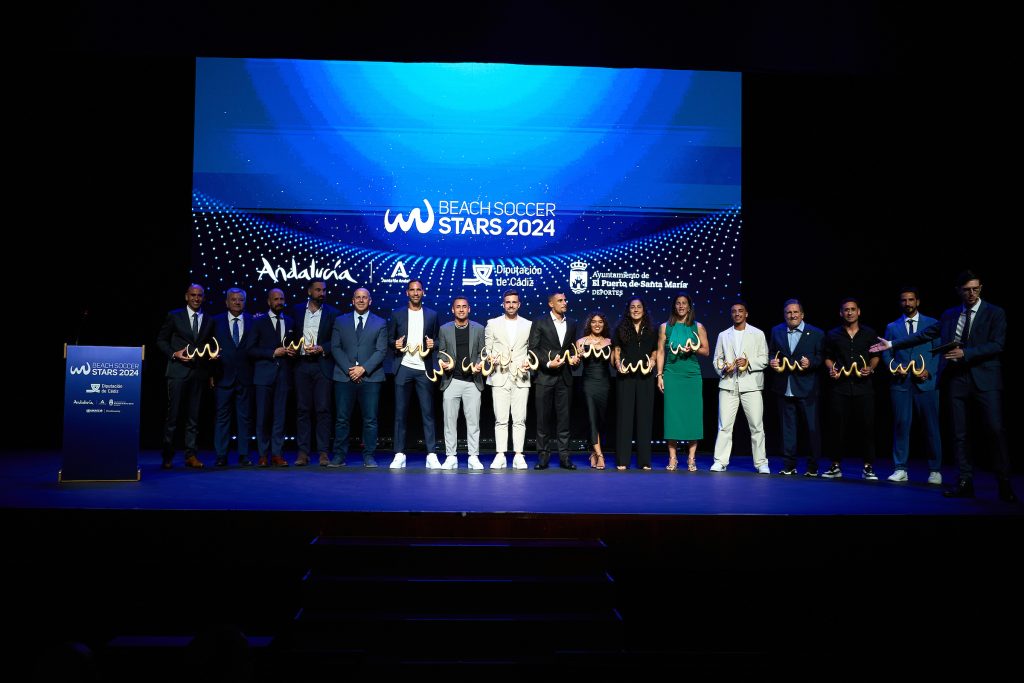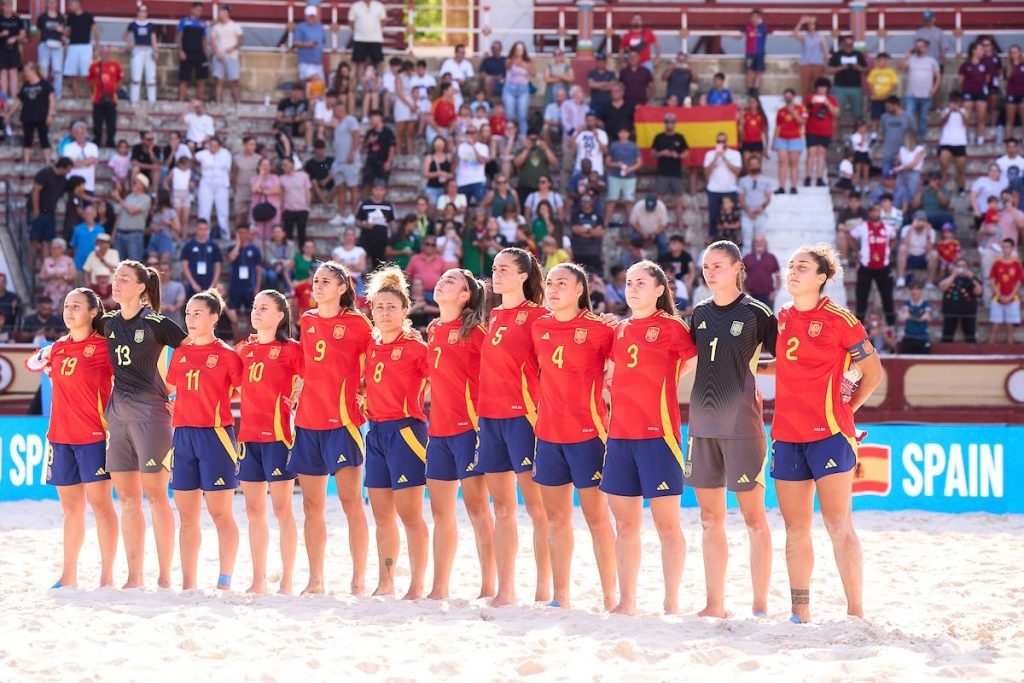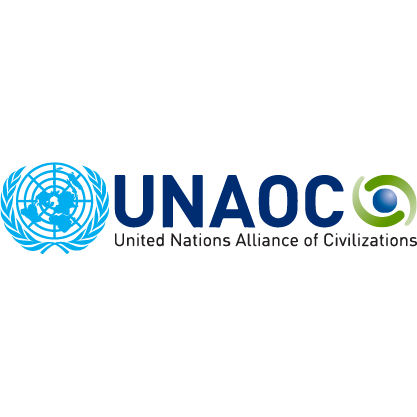Read Tahiti’s amazing journey from Moorea’s Temae Beach to the FIFA Beach Soccer World Cup final
Tahiti’s remarkable journey from Temae Beach on the island of Moorea in 2006 to the 2015 FIFA Beach Soccer World Cup final in Portugal is one of world football’s most extraordinary stories.
The game of beach soccer has enjoyed incredible growth and popularity in French Polynesia during the past decade thanks to the extraordinary achievements of Tiki Toa, our region’s most successful team on the global stage.
During this period the top Tahitian players on the sand have become bona-fide superstars not only across their home nation of just 190,000 citizens but also the entire beach soccer world.
Flying Oceania’s flag, Tahiti have grown into a global powerhouse of the sport, reaching two FIFA Beach Soccer World Cup finals and a semi-final since 2013, when they also hosted the sport’s showpiece event.
Tiki Toa’s rapid rise to global fame is even more remarkable considering their lack of exposure to top international beach soccer before their breakthrough qualification to the 2011 FIFA Beach Soccer World Cup in Ravenna, Italy.
In fact, the Tahitians’ first international beach soccer match was played only five years earlier during the inaugural 2006 OFC Beach Soccer Championship hosted by the French Polynesians.
Today, the francophone Pacific Island nation boasts two beach soccer leagues as well as a women’s competition with six dedicated pitches scattered across the country.
The seeds of this stunning success were sown during Oceania’s maiden international competition in 2006 at Temae Beach on the island of Moorea, where Tiki Toa’s journey began with an 8-1 win over the Cook Islands during the opening day of the competition.
And despite failing to qualify for the 2006 FIFA Beach Soccer World Cup after finishing third behind Oceania Champions Solomon Islands and runners-up Vanuatu, that tournament provided the sport in Tahiti with a launching pad that soon propelled them to global heights.
With the first three regional championships dominated by the Solomon Islands, Tiki Toa’s breakthrough Oceania title had to wait until 2011, fittingly in front of their home fans in Papeete, where they edged past the defending champions 4-3 in a thrilling title decider to secure their passage to Italy.
The 2011 FIFA Beach Soccer World Cup was a steep learning curve for the French Polynesians who were drawn in Group C against eventual winners Russia, plus Nigeria and Venezuela.
However, the OFC representatives left Ravenna with their heads held high after finishing third in the pool and picking up their first World Cup points in the process thanks to a 5-2 win over Venezuela.
Fast forward two years to 2013, which marked the first significant global milestone in the history of Tahitian and Oceanian beach soccer, with French Polynesia staging a hugely successful Beach Soccer World Cup, the first ever FIFA event in our region.
It was a truly memorable tournament for Tahiti both on and off the sand, as Tiki Toa rose to the occasion to reach the semi-finals in front of their adoring fans to come of age only seven years after their first international match.
The tournament provided overnight fame to Tahiti’s beach soccer stars, including the winner of the tournament’s adidas Bronze Ball Raimana Li Fung Kuee, who became instantly recognisable in their homeland.
But the best was yet to come for Tiki Toa and two years later in Portugal the Tahitians went one better marching all the way to the 2015 FIFA Beach Soccer World Cup final.
After topping their group that included two-time defending champions Russia, Paraguay, and Madagascar, the Tahitians overcame Iran 5-4 in a thriller in the quarter-finals before an even more nerve-wrecking penalty shoot-out semi-final win over 2008 runners-up Italy.
Just a single win away from World Cup glory, Tiki Toa pushed hosts Portugal all the way before narrowly going down 5-3 in the title decider.
Li Fung Kuee’s 2013 achievement was followed by Heimanu Taiarui winning the adidas Golden Ball, while Jonathan Torohia was named the tournament’s best goalkeeper.
After coming so close to one of football’s greatest fairytales, the golden generation of Tahitian beach soccer, which has earned plenty of plaudits for its quality both on and off-field, was ready again two years later to conquer that final frontier at the 2017 FIFA Beach Soccer World Cup in the Bahamas.
Tahiti’s remarkable journey from Temae Beach on the island of Moorea in 2006 to the 2015 FIFA Beach Soccer World Cup final in Portugal is one of world football’s most extraordinary stories.
It’s fair to say that despite their fourth-place finish at the 2013 FIFA Beach Soccer World Cup on home sand, Tiki Toa arrived in Espinho two years later, still flying under the radar.
However, that was no longer the case in the Bahamas in 2017, despite being drawn in the group of death alongside world number one Brazil, European champions Poland and the eighth-ranked Japan.
When the French Polynesians qualified for their maiden World Cup in Ravenna, Italy in 2011, their main goal was just to win a match, which they achieved by defeating Venezuela.
Tahitian goalkeeper Jonathan Torohia described the class of 2011 as “a group of friends in the neighbourhood” pulled together by their coach.
But in the coming years that group of friends developed into one of the world’s finest footballing teams, and after becoming the first Oceania side to qualify for a FIFA World Cup final, Tiki Toa were determined to keep building their legacy.
Tahiti’s results on the global stage were undeniably impressive, but it was their technique and style based on flair, aerial play, bicycle kicks and flying volleys that thrilled spectators and set them apart.
The French Polynesians didn’t just become one of the best teams in the world, they were also one of the most entertaining, capable of scoring spectacular goals with every player touching the ball, without the ball touching the sand.
And after proving in back-to-back tournaments that they were serious contenders, the Caribbean provided another stage for the OFC representatives to showcase their unique style and overall quality.
Tahiti took on Brazil, the world’s top-ranked beach soccer side, in their opening match in the Bahamas and the early signs weren’t good for the Pacific Islanders who slumped to a 4-1 defeat.
However, led by player-coach Teva Zavaroni, Tiki Toa dusted themselves off to bounce back with victories over Japan and Poland to progress to the knockout stages as group runners-up behind the South Americans.
After overcoming Paraguay 6-4 in the quarter-finals, the Tahitians faced Iran in a dramatic semi.
With a place in their second consecutive World Cup final on offer, the French Polynesians had to dig deep against the Asian side who took the lead midway through the second period.
But with only four-and-a-half minutes left on the clock, Tiki Toa skipper Naea Bennett sent a pinpoint cross towards Patrick Tepa who calmly slotted home to send the match into extra-time.
Neither side could find the net in the additional period, so the game went into a marathon penalty shoot-out that took 12 attempts before Raimoana Bennett’s conversion gave the Tahitians another shot at Word Cup glory.
Unfortunately, the mighty Brazilians proved a bridge too for Tiki Toa in a lopsided title decider; nevertheless the legacy left by the Tahitians, who set a stunning record of finishing in the top four in three consecutive FIFA World Cups, should not be underestimated.
Tiki Toa qualified for their fifth World Cup in a row after they won the OFC Beach Soccer Nations Cup which returned in 2019 after a six-year hiatus.
The French Polynesians finished the competition in Tahiti, which also featured Vanuatu, Tonga, Solomon Islands and New Caledonia, as undefeated champions.
However, as a clear sign of the strength and potential of beach soccer in Oceania, the tournament hosts were pushed all the way by the Solomon Islands in a thrilling title decider before edging past the brave Bilikiki 4-3 to secure their passage to the 2019 FIFA Beach Soccer World Cup in Paraguay.
Coach Naea Bennett described his side’s opening World Cup group match against Italy as a “catastrophic” defeat that was too much to overcome as the Tahitians failed to make the knockout stages for the first time since 2011.
Despite victories over Mexico and Uruguay in their other two group matches Tahiti narrowly missed out on a spot in the quarter-finals on goal difference.
Bennett admitted the early exit in Paraguay was hard to take, but his team vowed to make amends as they looked forward to reaching the next World Cup scheduled to take place in Russia in 2021.
And based on their astonishing track record to date, who would bet against them.
Source: OFC
Picture by Getty Images









